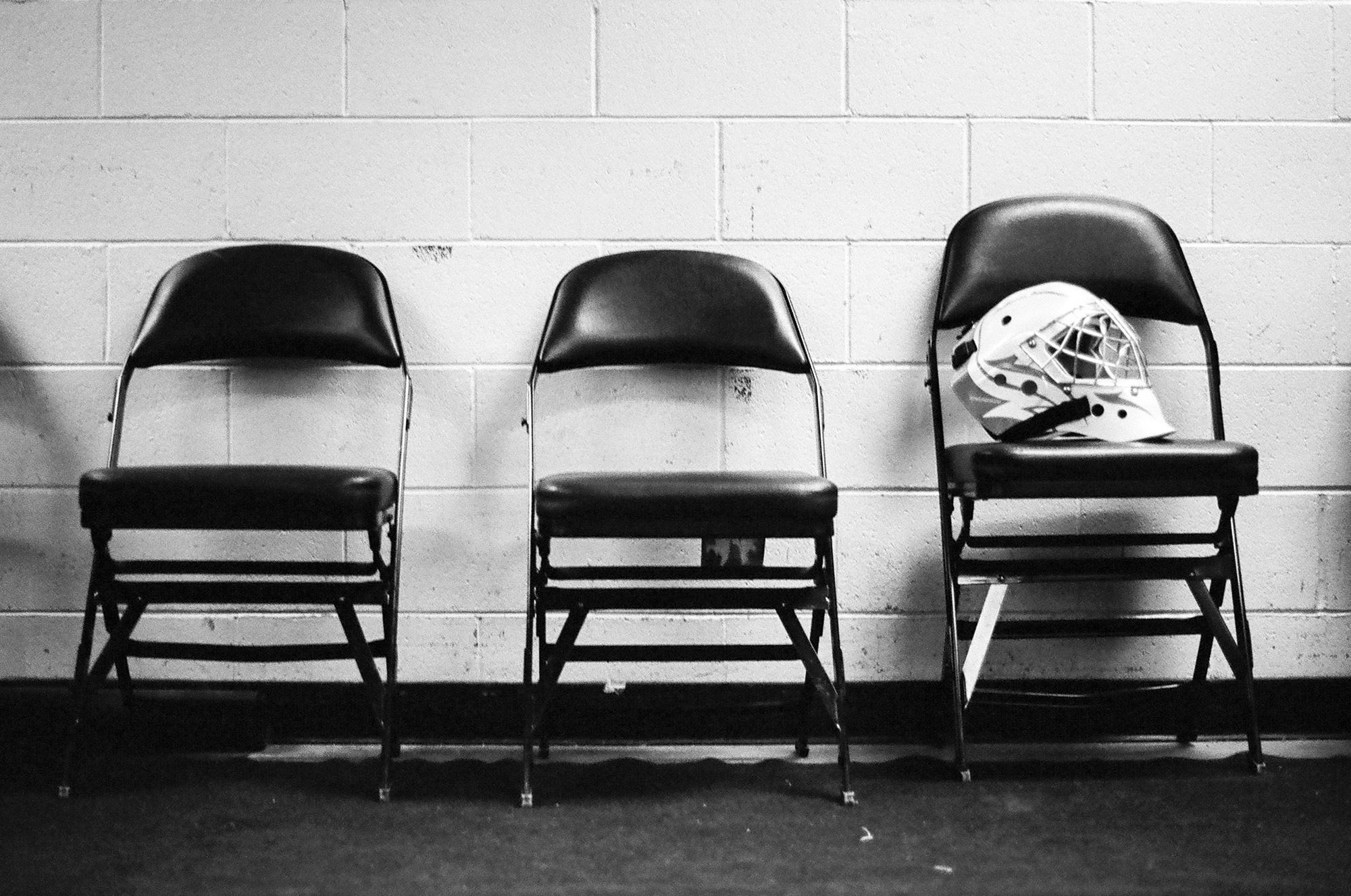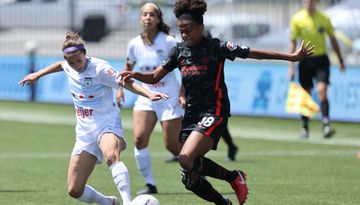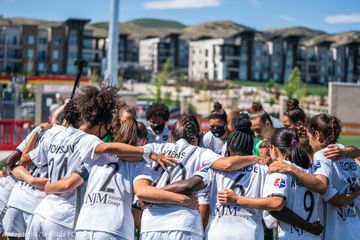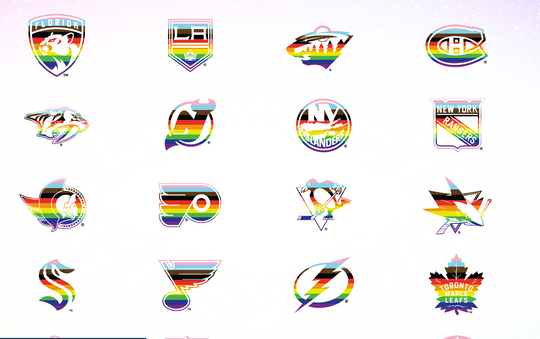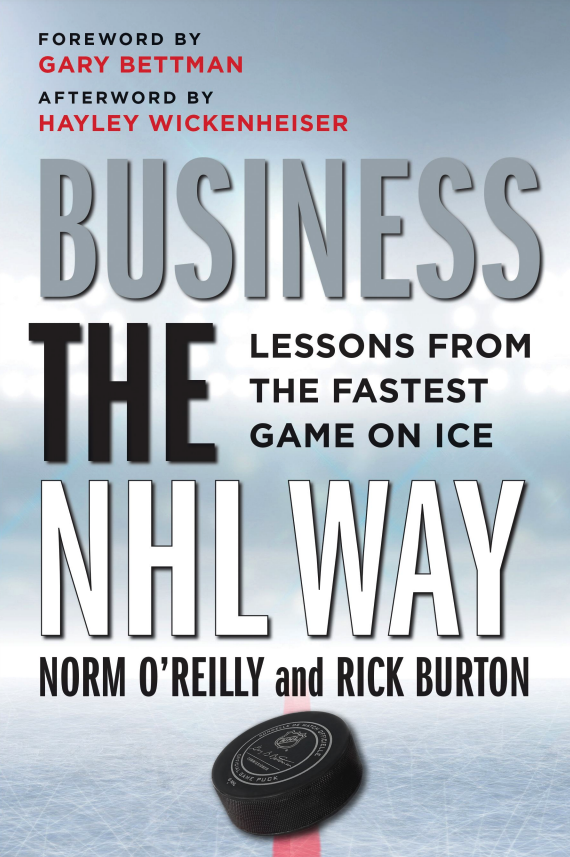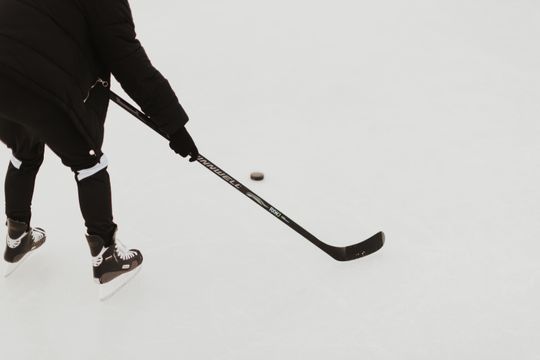Time and time again, the National Hockey League has shown that it does not care about the health, safety or well-being of its athletes – who are also workers, and human beings. The NHL's handling of the COVID-19 pandemic is just the latest example of the professional league showcasing its utter lack of concern for the players who make up the 31 teams – not to mention the coaches, other team staff, facilities staff, and the families of all of these workers.
When the NHL suspended action in mid-March, it seemed very much up in the air as to when the league would begin playing again. Today, more than two and a half months later, the league continues to insist that it will finish the 2019-20 season, come hell or high water.
This insistence comes despite the fact that a global pandemic is still happening; many U.S. states remain in varying levels of closure and varying levels of risk, and over 100,000 Americans have died from COVID-19 to date. Even if we were somehow able to completely separate sport from society at large – which we cannot – the outlook is still not good.
Here are just a few recent examples of the impact of coronavirus on sports teams attempting to return to action:
- Multiple Tampa Bay Lightning players tested positive in mid-June, shortly after team facilities had reopened. Facilities were closed temporarily following the positive results, but opened a few short days later.
- Six FC Dallas soccer players tested positive, despite being "inside the Orlando bubble" set by the MLS for their upcoming tournament. This was reported on July 1, 2020.
- Minor league baseball cancelled its 2020 season.
- Many MLB players have tested positive, including at least 31 players and seven staff members.
- At least 25 players from across the NBA have tested positive for the virus, including players from New Orleans, Brooklyn, and Denver.
Despite all of this, the NHL continues to insist that it will finish this season, albeit not in a traditional sense. The league has created a play-in format for its Stanley Cup Playoffs, where it's anticipated that 24 teams will compete for the championship in two hub cities. This information changes almost daily, but the league has looked at multiple hosts to serve as hub cities.
At the end of June, the frontrunners seemed to be Vegas and Edmonton. A day later, it seems possible that the league could use Edmonton and Toronto as its hub cities instead, due to a spike in COVID-19 cases in Vegas. Regardless of where they're held, fans will not be permitted to attend games, and players would report to training camps as early as July 10th. The "season" (playoffs) would then begin at the end of July or beginning of August.
On July 3, The Athletic's Jeremy Rutherford wrote that the St. Louis Blues have cancelled their team practices due to "multiple" positive COVID-19 tests – just another example of why it's a terrible idea for the NHL to be doing anything right now.
The NHL's insistence to finish the 2019-20 season is, at best, lackadaisical, and at worst, irresponsible, preposterous, and inhumane. The league has shown that it is willing to put its workers at risk, and for what purpose? Sports are not important right now. Sports should not be a priority in a time of a nationwide and global health crisis.
Team owners, who are already worth millions or billions of dollars, are prioritizing their profits and money over the health and safety of their players, coaches and families. The league, which pulled in $5.09 billion USD in the 2018-19 season, is prioritizing money over all else, in the midst of a global pandemic.
Back in 1919, it took a lot for the NHL to realize that cancelling a game was necessary – and by then, it was too late and had dire consequences.
The league cancelled its Stanley Cup Finals after five games due to an outbreak of Spanish flu, with the Montreal Canadiens and Seattle Metropolitans each capturing two wins. A sixth deciding game was scheduled, but a handful of players on each team became seriously ill – and the league cancelled the game only five and a half hours before its scheduled start.
Four days later, one of the players (Joe Hall) died of pneumonia as a result of contracting the flu. A team manager also became seriously ill and never fully recovered, dying several years later.
What will it take for the NHL to do the right thing this time around?
At this point, it certainly doesn't seem like the league is going to act responsibly. Sadly, due in part to the toxic nature of hockey culture, many NHL players who do not feel comfortable returning to action may wind up doing so anyways. Eric Engels (Sportsnet) and Sara Civian (The Athletic) both reported in recent days that they've spoken with several players who are "quite concerned about a return to play."
One player said a majority of the players do not want to return to play this summer. Estimated 75%. Though they’re concerned with financial pitfalls of that decision, they’re more concerned about risking contracting the virus/serious injury before cramming in the 2021 season 2/
— Eric Engels (@EricEngels) June 30, 2020
These players, of course, requested anonymity. If the NHL does return, players who (understandably!) do not want to risk contracting the virus and eventually potentially exposing their families and others are unlikely to express these concerns publicly due to the "herd mentality" of the sport and the toxicity of the culture that surrounds it.
The NHL has already shown that it doesn't care about the health or safety of its players when it comes to concussions or former players being diagnosed with the degenerative brain disease chronic traumatic encephalopathy, or CTE. Commissioner Gary Bettman has vehemently denied a link between CTE and repeated hits and blows to the head such as those experienced in hockey.
His denial comes despite the fact that no fewer than five former NHL players have been diagnosed with CTE, which can't be conclusively diagnosed until after a person dies. Although the league recently reached a settlement in a class-action lawsuit with hundreds of former players, the fight for many continues, including Steve Montador's family and former NHL enforcer Dan Carcillo.
Carcillo has spoken out over the past few years about concussions, CTE, and mental health, particularly once he entered his post-playing career. Further showcasing the toxicity of hockey culture and the complicity of the NHL in harm to its players are the disturbing strings of physical and sexual abuse that have recently surfaced, including a class-action lawsuit filed by Carcillo against the Canadian Hockey League.
Carcillo, who played in the Ontario Hockey League, and Garrett Taylor, who played in the Western Hockey League, filed the lawsuit last month. The allegations are incredibly disturbing; you can read the full lawsuit here. [TW: sexual abuse, physical abuse]. Several other players have since reportedly joined the lawsuit.
For Black players and other players of color, there's the added racial abuse that they often encounter on top of all of this.
Akim Aliu spoke about the racism he faced during his hockey career in a recent article for The Players' Tribune. An online Zoom call with the New York Rangers and K'Andre Miller was hijacked by racists who spammed the chat. Matt Dumba, who is Filipino-Canadian, spoke with NBC News about racism he faced in his earlier playing days, and Wayne Simmonds spoke about racism he faced in London, Ontario and the Czech Republic with NBC Sports:
"I think I would just say stand up when something is wrong. You see an injustice happening, don't sit there and let it happen, say something. Because if you don't and you let it happen, I'm not going to say you're just as complicit as the person that’s doing it, but you're not a part of the solution, you're definitely a part of the problem. Whether it's in this or in life, you've got to stand up for what you think is right for humanity's sake."
All of this is to say: the NHL has proven, time and time again, that it doesn't care about the health or well-being of its athletes and other employees. Hockey at large doesn't seem to care about players, either, even when those players are children being exposed to physical, sexual, and emotional abuse.
As more former NHL players are eventually diagnosed with CTE after they've died; as more current NHL players test positive for COVID-19 amid the league's insistence to finish the 2019-20 season; as more hockey players come forth with stories of abuse – when will enough really be enough to force real change?
I wish I knew the answer.
(Photo: Justin Connaher/Flickr)
